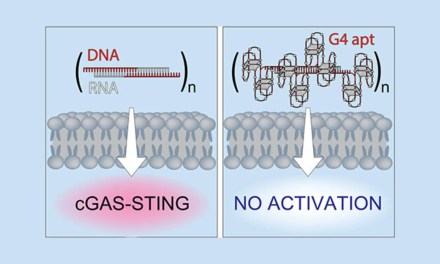Multiple myeloma, a type of blood cancer arising from plasma cells, remains a medical challenge since existing treatments fail to generate long lasting cures. Newer targeted therapies involve adding a protein called a chimeric antigen receptor (CAR) to a type of immune cell called a T-cell (CAR-T). The current FDA approved CAR-T products for myeloma target BCMA, which is expressed on most myeloma cells and is only expressed on some normal B cells and plasma cells, making it a good protein target. BCMA CAR expressing T-cells (BCMA CAR-T) are redirected to bind to and kill myeloma cells expressing BCMA. Although most patients respond to BCMA CAR-T, they eventually relapse. Additionally, CAR-T cells can cause cytokine release syndrome (CRS) and neurologic toxicity which can be either mild moderate or severe side effects of CAR-T therapy for myeloma. However, a new approach: adding BCMA CAR to a different specialized immune cell called an invariant natural T-cell (iNKT; BCMA CAR-iNKT) combined with treatment of a long-acting IL-7 molecule to boost their effectiveness, has shown encouraging results in recent research.
Professors Julie O’Neal and John DiPersio from Washington University recently published their pioneering study in Blood Advances. Laboratory mice engrafted with multiple myeloma tumor cells expressing BCMA were treated with BCMA CAR-iNKT cells alone or in combination with a long-acting IL-7 molecule. They showed IL-7 enhanced the expansion and persistence of the BCMA CAR-iNKT cells in the mice, leading to better tumor control compared to mice treated with BCMA CAR-iNKT cells alone.
Addressing the safety of this new treatment, the team compared the potential for CAR-iNKT to induce CRS. For these studies they used an assay developed in their lab that measures IL-6 secretion by immature dendritic cells in the context of tumor killing by either BCMA CAR-T or BCMA CAR-iNKT effector cells. Compared to CAR-T, known to induce CRS, they saw a trend toward lower IL-6 secretion induced by CAR-iNKT. The findings were promising, as O’Neal reports: “CAR-iNKT cells may cause fewer cases or less severe CRS in human patients, which if true, could be an advantage to using CAR-iNKT over CAR-T cells.”
In summary, this study opens exciting new possibilities in treating multiple myeloma, offering an alternative to existing treatments. The innovative combination of CAR-iNKT cells with IL-7 showed anti-myeloma activity and potentially a safer profile. The authors indicated further studies are planned to continue to develop and improve CAR-iNKT therapy for treatment of multiple myeloma.
Journal Reference
O’Neal J, Cooper ML, Ritchey JK, Gladney S, Niswonger J, González LS, Street E, Haas GJ, Carter A, Amayta PN, Gao F, Lee BH, Choi D, Berrien-Elliott M, Zhou A, Fehniger TA, Rettig MP, DiPersio JF. Anti-myeloma efficacy of CAR-iNKT is enhanced with a long-acting IL-7, rhIL-7-hyFc. Blood Adv. 2023 Oct 24;7(20):6009-6022. DOI: https://doi.org/10.1182/bloodadvances.2023010032.
About the Authors

Dr. Julie O’Neal, PhD is an Assistant Professor of Medicine at Washington University in Saint Louis and leads the translational multiple myeloma immunotherapy program within the lab of John DiPersio. Her studies include designing novel single and bi-targeted chimeric antigen receptors (CAR) and expressing them on T (CAR-T) or iNKT (CAR-iNKT) cells and testing them in pre-clinical in vitro and in vivo myeloma models. She is also testing agents that will enhance persistence and efficacy of modified immune cells to improve their activity. Finally, efforts are underway to use proteomics and genetics to better understand the basic biology of CAR proteins and iNKT cells.

Dr. John DiPerso MD, PhD is the Virginia E and Sam J Golman Professor of Medicine and Director, Center for Gene and Cellular Immunotherapy at Washington University School of Medicine in Saint Louis. His research focuses on fundamental and translational aspects of leukemia, lymphoma and stem cell biology. These studies include identification of genetic abnormalities in human leukemias, understanding processes involving stem cell and leukemia cell trafficking and clinical and translational programs in both leukemia/MDS.
Featured Image Credit:
Dr Erhabor Osaro, CC BY-SA 3.0, via Wikimedia Commons















































